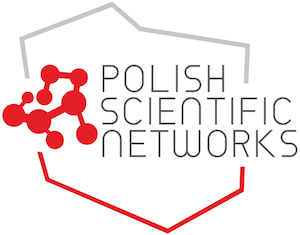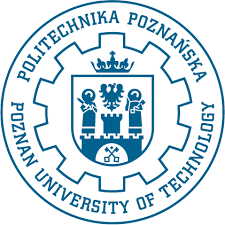Organizers
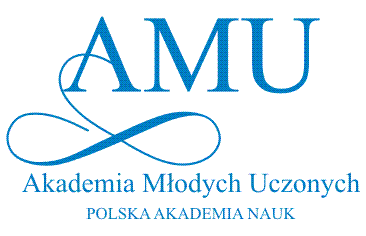 The Polish Young Academy (PYA) was constituted under the Polish Academy of Sciences (PAS) Parliamentary Act of April 30, 2010. It is a part of the PAS corporation and was established thanks to the effort of the PAS authorities inspired by the activity of similar bodies in other countries.One of the PYA’s tasks is to promote the activation of the young scientific community, in particular:
The Polish Young Academy (PYA) was constituted under the Polish Academy of Sciences (PAS) Parliamentary Act of April 30, 2010. It is a part of the PAS corporation and was established thanks to the effort of the PAS authorities inspired by the activity of similar bodies in other countries.One of the PYA’s tasks is to promote the activation of the young scientific community, in particular:• participating in the formation of science policy
• promoting scientific excellence
• disseminating scientific results.
Selection procedure of the PYA members is based on the election procedures for the PAS members, main criterion being the candidate’s outstanding scientific achievements. PYA members are nominated for 5 years, without a possibility of re-election. Each PYA member can contribute to the work of the PAS by participating in the work of divisions, branches, scientific committees and task force committees.
PYA is formed by leaders in respective scientific domains – scientists that have typically already been honoured with other prestigious awards and distinctions, including recipients of the European Research Council grants, the Ministry of Science and Higher Education Scholarships or the Foundation for Polish Science programmes. Despite their young age, many of them have already been appointed or awarded a professor title.
PYA is actively involved in consultations regarding science and higher education policy, including “Law 2.0”. PYA was represented in the Council of the National Congress of Science (NCS) and participated in the NCS conferences. Members of PYA were also involved in consultations conducted by the Policy Support Facility, a group assigned by the Ministry of Science and Higher Education with a peer review of Poland’s higher education and science system, and in consultations regarding programmes supporting internationalization of Polish science, proposed by the newly founded National Agency for Academic Exchange.
In an effort to promote scientific excellence, PYA supports the mobility of Polish scientists. This activity is illustrated e.g. by the report on national and foreign mobility of scientists, published in 2015 in cooperation with “Nauka Ludzka Rzecz” Initiative. Cooperation and mobility of scientists was also the main topic of the 1st edition of Polish Scientific Networks conference (PSN, Warsaw, June 16 -18 2015), organized, as well as the next editions, in cooperation with the Ministry of Science and Higher Education and the Association of the Foundation for Polish Science Scholars. Intersectorial mobility was, in turn, the topic of the PSN: Science and Business, meeting held in Wrocław a year later (June 30 – July 1, 2016). PYA also cares about building competence of young scientists. For that purpose, PYA organizes annually summer schools Forge of Young Talents (Kuźnia Młodych Talentów) addressed to PhD students specializing in life and exact sciences and developing so called soft skills.
In order to encourage new generations to practice science, PYA actively supports its popularization. For many years, PYA members have been taking part in Science Festivals in different Polish cities, in Warsaw Science Picnic, in European Researchers’ Night in Olsztyn, etc. PYA has also initiated Flying Scientific Cafes (Latające Kawiarenki Naukowe), popular science meetings that are mainly addressed to children and school youth.
Since May 2017, PYA counts only 15 members. This situation is, however, only temporary: in 2019, new members will join. The call for applications will be open since autumn of 2018.More information: http://www.amu.pan.pl/

ASSOCIATION OF THE FOUNDATION FOR POLISH SCIENCE (FPS) SCHOLARS unifies laureates of postdoctoral scholarship programmes of the Foundation for Polish Science. Among the Association’s aims are the interdisciplinary and intergenerational integration of FPS Scholars, actions aimed at supporting science and popularizing the ethos of a scientist and teacher, promoting of good scientific practice and improving qualifications, as well as supporting scholars in critical situations.
The Association, initially named Association of the Foundation for Polish Science Foreign Scholars, was founded in 2000, during a meeting organized by the Foundation for Polish Science attended by laureates of the Foundation postdoctoral scholarship programme KOLUMB. Initially, the Association was established as an informal group of young scientists, whose postdoctoral training in foreign research centres was financed by the Foundation. In April 2003, the Association was officially registered as an association. In December 2009 the Association, following the establishment of different postdoctoral scholarship programmes of FPS, was joined by laureates of several other Foundation programmes, such as Homing (later replaced by Homing-Plus), Focus, Ideas, Team, Master, Welcome, and – in May 2014 – by the laureates of the programme Bridge, who have completed at least 6 months long fellowship in a foreign research centre. Since May 2016, laureates of all types of TEAM programmes are also welcomed among FPS scholars. At the same time, in 2009, the association was renamed as the Association of FPS scholars.
The Association’s activity manifests mainly in the organization of meetings and conferences, both informal and formal, that support scientific cooperation – interdisciplinar, international and intersectorial, including the series of Polish Interdisciplinary Symposia Inter-Mix and the Polish Scientific Networks conference, that addresses scholars interested in applying research in practice. Every year, in May members of the Association meet during the Annual Alumni Congress, organized in different academic centres in Poland. The Congresses are an excellent occasion for the presentation of most recent research results, scientific discussions, as well as to maintain contacts and friendships. Additionally, members of the Association have been engaged in the debate about the reorganization of science in Poland for many years, as part of advisory bodies or as experts in panels and conferences dedicated to this issue.
The history of the Association has been marked with a painful event – a tragic death of dr Artur Rojszczak, founder and animator of the Association. In his memory, the Association has established an award named after dr Rojszczak. The award is granted to young doctors who stand out not only with prominent scientific achievements, but also with a humanistic attitude towards the world, broad horizons and the ability to break down barriers and to surpass the framework of narrow scientific specializations. The awarding ceremony of Artur Rojszczak Award takes place every year during the Annual Congress of the Association.
klub-fnp.pl
Strategic partners
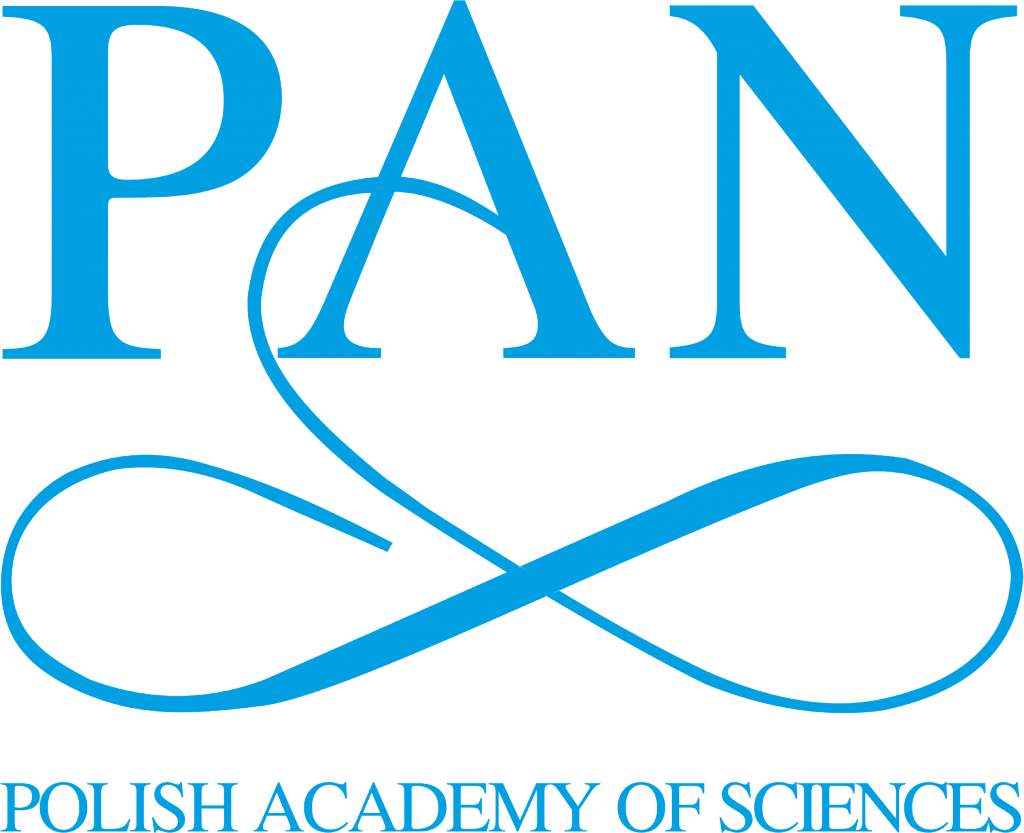
Polish Academy of Sciences (PAS), as the leading scientific institution in Poland, carries out comprehensive research activity aimed at the development, promotion, integration and popularization of science and the development of education, and also the enrichment of national culture. The Academy achieves these goals by carrying out advanced research of strategic importance for the development of science and economy, by organizing interdisciplinary research teams involved in the concentration of modern research apparatus, integrating Polish scientific community, educating academic staff, and by innovatively utilizing the results of scientific research, also in cooperation with economic entities, and by organizing scientific conferences and participating in science popularization events.
Structure of PAS unites traditional functions of autonomic scientific corporation with an academia that directly realizes research goals. This combination provides the possibility to create science by personal research involvement of PAS members affiliated in different research facilities. The corporation of scholars of the Academy includes:
• scientific committees, that on the grounds of their composition constitute the most representative scientific circle in the given discipline;
• task force committees, that are appropriately selected groups of experts, established to accomplish certain research tasks
• national committees, established in order to maintain and develop the cooperation with international scientific organizations,
• divisions, participating in the performance of tasks of the Academy within the scientific fields included in its scope, by the involvement of its members in the works of branches of the Academy, scientific committees, task force committees, and the boards of experts of the research institutions,
• territorial branches, established in order to perform the tasks of the Academy in a particular region of Poland, that above all integrate the academic life in the region of Poland in question,
• Scientific institutes, that are the basic organizational units of the corporation.
Gathered around departments, the institutes conduce international and internal research, both basic and applied, organize conferences, symposia and scientific lectures, provide financial services and perform the transfer of technology.
Recently, Polish Young Academy functions in the structure of PAS. Its tasks are centred around the activity for the activation of the young scientific community, by, among others, presentation of opinions and programmes related to the scientific issues, the organization of debates, discussions and scientific conferences, and the dissemination of scientific results.
Polish Academy of Sciences is also engaged in the publishing and expertise, provides access to the library, museum and archival stocks, organizes conferences, exhibitions and popular science lectures.
As the publishing activity, PAS ensures the continuity in the publishing of the scientific publications and journals most important in given specializations, a part of which are available in open access on the Academy’s web page. Science popularization activity involves, above all, open popular science lectures “Wszechnica”, participation in picnics and science festivals, nights of museums or book fairs; concerts and exhibitions are also organized periodically. PAS research units are actively involved in the preservation and restoration of material culture heritage and natural resources in Poland and abroad. The Academy’s institutions possess in their collections, among others, printed literary treasures, dating back to 15th century, that include early editions of Hevelius’ and Copernicus’ works and Marie Skłodowska Curie’s or Albert Einsteins’ letters. Biological collections, comprising unique plants and seed banks, are also not without significance.
For outstanding achievements, the Polish Academy of Sciences grants: Medal of the Polish Academy of Sciences, Nikolas Copernicus Medal, Stefan Banach Medal of the Polish Academy of Sciences and the Polish Academy of Sciences Statuette.
More information at: pan.pl
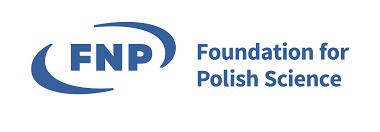 Foundation for Polish Science (FNP) has been in operation since 1991. It is a non-governmental, non-political, non-profit institution and the largest source of science funding in Poland outside of the state budget.
Foundation for Polish Science (FNP) has been in operation since 1991. It is a non-governmental, non-political, non-profit institution and the largest source of science funding in Poland outside of the state budget.Foundation’s mission is to support outstanding scholars and research groups and to back innovative projects and the commercialization of research results.
The Foundation is offering prizes, scholarships and subsidies for scientists of any age, at all career stages, irrespective of the represented field of science.
Operating rules of FNP:
• to offer support directly to scholars and research groups
• all subventions, prizes and scholarships are awarded on the basis of a competition
• scientific excellence is the most important criterion in awarding of support
• assessment of the achievements of participants in the Foundation’s competitions is made by Polish and foreign scientists recognized in their field (peer-review method)
• the support is awarded according to the “Hard money” principle (strict accounting procedures for funding awarded)
The Foundation actively supports and promotes scientific mobility and international research cooperation, and many FNP laureates achieve international success. FNP collaborates with over 45 foreign scientific institutions and organizations. We are a member of European Foundation Centre (EFC) and Science Europe.
Foundation’s statutory activities are funded from its own resources, including donations of 1% of income taxes, private donations and European funds. In 2008, the Foundation began the realization of programmes founded by the European Regional Development Fund under the Operational Programme Innovative Economy, and in 2011 it started the SKILLS project, financed from the Operational Programme Human Capital funds. Both ended in 2015. At the end of 2015 and at the beginning of 2016, the Foundation launched new projects financed from the Operational Programme Smart Growth: International Research Agendas, TEAM, TEAM-NET, TEAM-TECH, FIRST TEAM, HOMING and POWROTY.
Detailed information can be found on www.fnp.org.pl/en
Our Mission and Vision
The mission of the University is to educate students of all cycles of higher education and students of lifelong learning mode in close connection with scientific work as well as research and development projects carried out by the University in cooperation with prospective employers of PUT’s graduates and in continuous contact with society. Our visionary goal is transformation of PUT into the country’s leading technical university, known and acknowledged in Europe, an important and sought after partner of educational establishments of the world, a university that can offer high quality education and the world-class scientific work and research and development projects.
European University
Today Poznan University of Technology offers education at 10 faculties which provide students with a choice of 27 fields of study. More than 20,000 students of I and II cycles, Phd students and participants of post-graduate programmes receive education here. More than 1,200 academic staff care about their education. Implementation of PUT’s mission enables the vision to become reality – to be one of the best technical universities in Poland, which aspires to become an equipollent partner of other European schools in terms of education quality and high level of scientific research. PUT was the first Polish institution of higher education to become a member of CESAER (Conference of European Schools for Advanced Engineering Education and Research) – a European organisation that brings together the best technical schools. It is also a member of SEFI (Societe Europeenne pour la Formation des Ingenieurs), EUA (European University Association), ADUEM (Alliance of Universities for Democracy) and IAU (International Association of Universities).
Science
Poznan University of Technology is an important centre of scientific research. The proportion of funds for research projects grows year by year. The strong point of the University is its academic staff. Their achievements in science and numerous publications make a significant contribution to modern technical sciences. Many young members of academic staff and Phd students receive academic grants allowing them to improve their skills and gain new experience abroad. The University’s researchers receive the most prestigious state awards for achievement in science. The Foundation of Polish Science, which awards the best Polish scientists, three times honoured professors of our University with the so-called “Polish Nobel Prize” – in 2000 it was awarded to professor Jan Węglarz, in 2005 to professor Roman Słowiński and in 2011 to professor Elżbieta Frąckowiak.
Education
PUT’s education offer is modern, rich and specifically adapted to meet requirements of employers – both Polish and foreign ones. The University offers more than 100 specialisations within its 27 fields of study. Students choose to study at PUT attracted by high standards of education, thoroughly trained and experienced academic staff and a good possibility to realise fully their interests both in science and beyond as well as by friendly atmosphere. We are really proud of our students who successfully participate in international competitions and contests, in science circles and student organisations.
Partners
 The biggest advantages of Cracow University of Technology (CUT) are:
The biggest advantages of Cracow University of Technology (CUT) are:
- over 70-year-old tradition of educating engineers,
- research and development teams, which are open to change, future oriented and hard working;
- overall goal of improving the level of Polish scientific research and technical applications.
These traits have won CUT a strong position and well established brand.
Currently, the university educates 14.5 thousand full-time and part-time students of BSc and MSc, PhD and postgraduate studies. Our educational offer comprises 31 programmes of BSc and MSc studies in Polish at 7 faculties and 7 programmes of study in English at 5 faculties. Such a wide range of programmes means variety of intellectual exploration and solving challenging tasks under the supervision of qualified scientific faculty.
Cracow University of Technology ensures the highest ethical standards and a high scientific level. Many of the nearly 1 200 researchers and tutors are outstanding professionals who participate in intercollegiate and international research teams. Their knowledge and expertise allow our university to maintain the high position in Polish and in the international scientific community.
The scientific-research and development works are carried out at the Cracow University of Technology as a part of the priority research directions covered by the National Framework Program, at the same time serving to shape and deepen the academic specialties of the university. They are implemented within strategic research areas:
- Shaping space and protecting cultural heritage
- Materials and nanotechnologies
- Systems, devices and industrial processes
- Energy and the environment
- Applied informatics and bioengineering
- Engineering constructions and infrastructure
Reserchers at Cracow University of Technology are open for new cooperation opportunities. Industry and scientific partners are welcome in central administration units subordinate to the Vice-Rector for Science, to get consultations and assistance in procedures of financing and implementation of projects that are run with CUT:
- Research Department in the field of national research projects and service research projects with external entities (expert opinions, R & D works)
- Center for Technology Transfer in the field of framework programs financed by the European Commission, European Structural Funds and international research projects, as well as in the commercialization of research results.
Center for Technology Transfer as an internal unit of Cracow University of Technology operates on the field of science to business cooperation such as:
- commercialization of the intellectual property,
- technology transfer,
- support within framework programs,
- services supporting SME development.
CTT focuses on implementation of research results of Cracow University of Technology to the industry. Our Center has an insight knowledge about the realities of the commercialization process, and thanks to active collaboration with entrepreneurs can clearly identify technical needs and business expectations of the industry.
Many years of activity in the gap between science and business allowed us to develop a suitable offer for both scientists and entrepreneurs. Depending on the individual needs of the customer we inform, advise, train, support the transfer of technology, elaborate technological innovation certificates, conduct technological audits, help to find foreign partners. We also provide professional support to entities, who wish to apply for international research and development programs funded by the European Commission.
From the very beginning we have been trusted by more than 45,000 customers, we have performed 130 international SME technology transfers, we have issued dozens of technological innovation certificates, we have conducted hundreds of technological audits. Over the past few years we have brought to conclusion over 30 license agreements for commercialization of research results generated at the Cracow University of Technology.
The Polish Ministry of Science and Higher Education ranked two GUT faculties in the highest category of A+ and five more in the A category as a result of the comprehensive evaluation of scientific research or research and development activity of scientific units. Two times in a row Gdańsk University of Technology was ranked on the 1st place in the ministry ranking of the universities which candidates to study choose the most often.
Modern Research and Development Centre
The Gdańsk University of Technology campus was voted one of the ten most beautiful in Europe. It is filled with cutting-edge laboratories and research centres, including the Immersive 3D Visualization Lab, the Nanotechnology Centre and the ProtoLab prototyping facility. In total, GUT owns over 250 didactic and research laboratories. The university also provides modern housing for more than 2 600 students in 12 dormitory buildings as well as possesses a high quality Academic Sports Centre.
The GUT library is the oldest and largest technical library in northern Poland, holding over 1,000,000 volumes, mainly textbooks, study guides and science books, but also priceless historical publications, some of them belonging to the original Gdańsk Societas Physicae Experimentalis collection. Our state-of-the-art facilities coexist with historical buildings, in which authentic research apparatuses dating back to the university’s early days can be found.
International Recognition
GUT belongs to numerous international associations, including CESAER, BSRUN, EUA and CDIO, as well as participates in programs such as Erasmus+, Erasmus Mundus, CEEPUS, EEA and Norway Grants. The number of international students at GUT increases year by year. Their current number is close to 900. They represent over 70 different nationalities.
MBA studies as well as the International Management graduate field of study at the Faculty of Management and Economics were awarded the international Association of MBAs (AMBA) certificate, obtained by only 2% of universities in the whole world. In 2019, the GUT MBA Programme was ranked for the first time in the international QS ranking, which classifies the best MBA executive programmes in the world. It included a total of 156 global executive MBA programmes and the GUT programme is the only one from Poland. The International MBA in Strategy, Programme and Project Management performed particularly well in Executive Profile Ranking and Career Outcomes Ranking.
In 2017 the European Commission has granted GUT the right to use the prestigious HR Excellence in Research logo. Gdańsk University of Technology was thus recognized as an institution that provides one of the best work and development conditions for researchers in Europe. The HR Excellence in Research logo is a symbol of quality assuring the highest standards in research and employment.
Twice in a row GUT was granted the ELSEVIER Research Impact Leaders award for its widely recognized scientific publications, which combine social and technical sciences. The awards are part of the international ELSEVIER initiative, promoting the scientific output of Polish universities in the world. Factors taken into consideration include the citation index, the number of publications in the most prestigious journals and the contribution of international authors.
 UTP University of Science and Technology (Uniwersytet Technologiczno-Przyrodniczy – the UTP) in Bydgoszcz has more than 60 year-long tradition. In 1951, when the first school of higher education in Bydgoszcz was created- the Evening School of Engineering. Early in its history, it educated chemical and mechanical engineers. Having been converted into the Engineering School of Higher Education in 1964, full-time, evening and external programmes were offered by 4 technical faculties.
UTP University of Science and Technology (Uniwersytet Technologiczno-Przyrodniczy – the UTP) in Bydgoszcz has more than 60 year-long tradition. In 1951, when the first school of higher education in Bydgoszcz was created- the Evening School of Engineering. Early in its history, it educated chemical and mechanical engineers. Having been converted into the Engineering School of Higher Education in 1964, full-time, evening and external programmes were offered by 4 technical faculties.
The development of agriculture studies was launched in 1969 by the establishment in Bydgoszcz of the branch of the Agricultural School of Higher Education from Poznań. This branch became independent in 1972 by turning into the Faculty of Agriculture with Animal Production Section. Pursuant to the decree of Prime Minister of August 20, 1974, those two schools were joined into the Jan and Jędrzej Śniadecki University of Technology and
Agriculture in Bydgoszcz, renamed the UTP University of Science and Technology in 2006.
UTP University of Science and Technology is a multi-profile school of higher education; the only one in the region which integrates both agricultural and technological sciences and the only one in the region educating engineers. Throughout the 60-year-long history 38, 000 students have graduated from the University, mostly majoring in civil engineering and machinery construction and agriculture.
